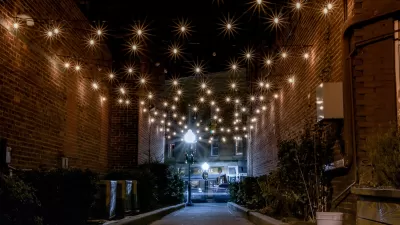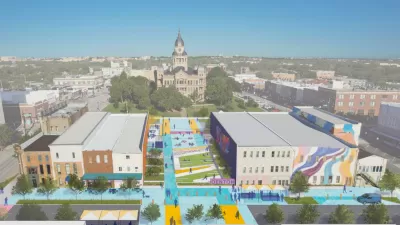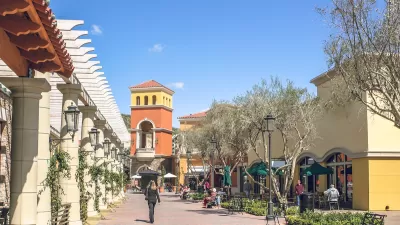Recent studies show that upwards of 77% of Millennials are opting to live in urban areas. The impact on the local economy will be huge, IF urban planners rethink how we build our downtowns.
It's no surprise that driving less and walking more can have significant benefits to the environment and our health. Less commonly discussed, however, is the implications to our local economy. Author Amanda Maher reflects on a presentation by Jeff Speck, author of "The Walkable City" and discusses why cities should be rethinking their downtowns. There are four keys to getting residents walking more: (1) having a reason to walk; (2) feeling safe to walk; (3) having a comfortable walk; and (4) enjoying an interesting walk.
When city planners focus on these four areas, cities reap the economic, health and environmental benefits.
It's not easy to create a walkable downtown. The author explains, "It often takes a while to create the momentum for downtown investment, but the downtown is the one neighborhood that belongs to the entire city. The city's reputation hinges on its ability to attract people and businesses to these downtown areas."
FULL STORY: Designing Walkable Downtowns Help Cities Reap Real Benefits

Alabama: Trump Terminates Settlements for Black Communities Harmed By Raw Sewage
Trump deemed the landmark civil rights agreement “illegal DEI and environmental justice policy.”

Study: Maui’s Plan to Convert Vacation Rentals to Long-Term Housing Could Cause Nearly $1 Billion Economic Loss
The plan would reduce visitor accommodation by 25% resulting in 1,900 jobs lost.

Planetizen Federal Action Tracker
A weekly monitor of how Trump’s orders and actions are impacting planners and planning in America.

Wind Energy on the Rise Despite Federal Policy Reversal
The Trump administration is revoking federal support for renewable energy, but demand for new projects continues unabated.

Passengers Flock to Caltrain After Electrification
The new electric trains are running faster and more reliably, leading to strong ridership growth on the Bay Area rail system.

Texas Churches Rally Behind ‘Yes in God’s Back Yard’ Legislation
Religious leaders want the state to reduce zoning regulations to streamline leasing church-owned land to housing developers.
Urban Design for Planners 1: Software Tools
This six-course series explores essential urban design concepts using open source software and equips planners with the tools they need to participate fully in the urban design process.
Planning for Universal Design
Learn the tools for implementing Universal Design in planning regulations.
Caltrans
Smith Gee Studio
Institute for Housing and Urban Development Studies (IHS)
City of Grandview
Harvard GSD Executive Education
Toledo-Lucas County Plan Commissions
Salt Lake City
NYU Wagner Graduate School of Public Service





























